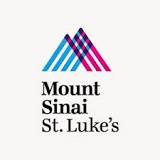Efficacy of Interscalene Brachial Plexus Block With Liposomal Bupivacaine for Arthroscopic Shoulder Surgery
| Status: | Completed |
|---|---|
| Conditions: | Orthopedic |
| Therapuetic Areas: | Orthopedics / Podiatry |
| Healthy: | No |
| Age Range: | 17 - Any |
| Updated: | 4/17/2018 |
| Start Date: | January 2014 |
| End Date: | February 2015 |
Comparison of Cumulative Opioid Consumption After Interscalene Brachial Plexus Block With Liposomal Bupivacaine (Exparel; 88 mg in 20 cc) Versus Bupivacaine 0.25% for Arthroscopic Shoulder Surgery
The purpose of this study is to compare the quality and duration of pain relief after
shoulder surgery provided by a single injection of liposomal bupivacaine versus standard
bupivacaine when administered as an interscalene brachial plexus block. It is hypothesized
that the liposomal bupivacaine formulation will provide more effective pain relief than
standard bupivacaine.
shoulder surgery provided by a single injection of liposomal bupivacaine versus standard
bupivacaine when administered as an interscalene brachial plexus block. It is hypothesized
that the liposomal bupivacaine formulation will provide more effective pain relief than
standard bupivacaine.
Inclusion Criteria:
- English speaking adults (age >17 years) of American Society of Anesthesiologists (ASA)
I-III physical class scheduled for elective arthroscopic shoulder surgery will be
eligible to participate regardless of race/ethnicity.
Exclusion Criteria:
- Subjects will not be eligible for this trial if they report a history of an allergy to
a local anesthetic, baseline neurological deficit, a medical condition that would make
it difficult to assess sensory distribution or communicate with the staff, a recent
history (< 3 months) of drug or alcohol abuse, concomitant opioid therapy, or a
preexisting coagulation disorder.
We found this trial at
1
site
St Luke's - Roosevelt Hospital Center With 523 beds, Mount Sinai St. Luke's serves as...
Click here to add this to my saved trials
